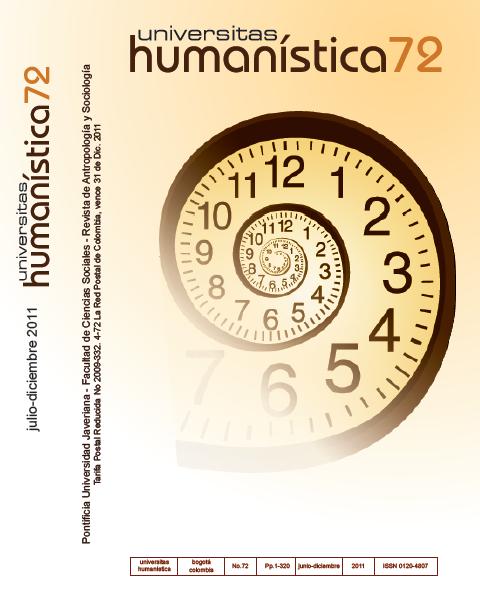Abstract
This paper explores how processes of social mobilization and property parceling framed in the Agrarian Reform National Plan —involving an ample sector of tenant farm laborers in an Andean Nariño large estate between 1958 and 1963— appear, nearly five decades later, as objects of moral interpretation and appraisal. It analyzes the significance assigned in accounts to the agency of actors involved (peasants, landlords and state); variations in such assigning are connected to the moral frameworks they call on to interpret their past; and their origin is traced back on the various subalternization experiences they faced. I suggest that, when turning out to different sources of moral appraisal, the existence of manifold subjectivation forms makes itself evident depending on their relations to different forms of authority (landlords, church, state), and that they come with various alternative standings face to their past
This journal provides immediate open access to its content on the principle that making research freely available to the public, encourages greater global exchange of knowledge.
The journal Universitas Humanística is registered under a Creative Commons Attribution 4.0 International Public License. Thus, this work may be reproduced, distributed, and publicly shared in digital format, as long as the names of the authors and Pontificia Universidad Javeriana are acknowledged. Others are allowed to quote, adapt, transform, auto-archive, republish, and create based on this material, for any purpose (even commercial ones), provided the authorship is duly acknowledged, a link to the original work is provided, and it is specified if changes have been made. Pontificia Universidad Javeriana does not hold the rights of published works and the authors are solely responsible for the contents of their works; they keep the moral, intellectual, privacy, and publicity rights.
Approving the intervention of the work (review, copy-editing, translation, layout) and the following outreach, are granted through an use license and not through an assignment of rights. This means the journal and Pontificia Universidad Javeriana cannot be held responsible for any ethical malpractice by the authors. As a consequence of the protection granted by the use license, the journal is not required to publish recantations or modify information already published, unless the errata stems from the editorial management process. Publishing contents in this journal does not generate royalties for contributors.


